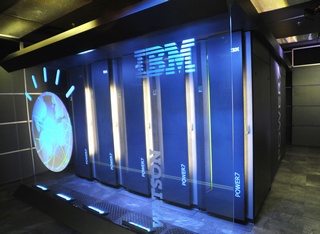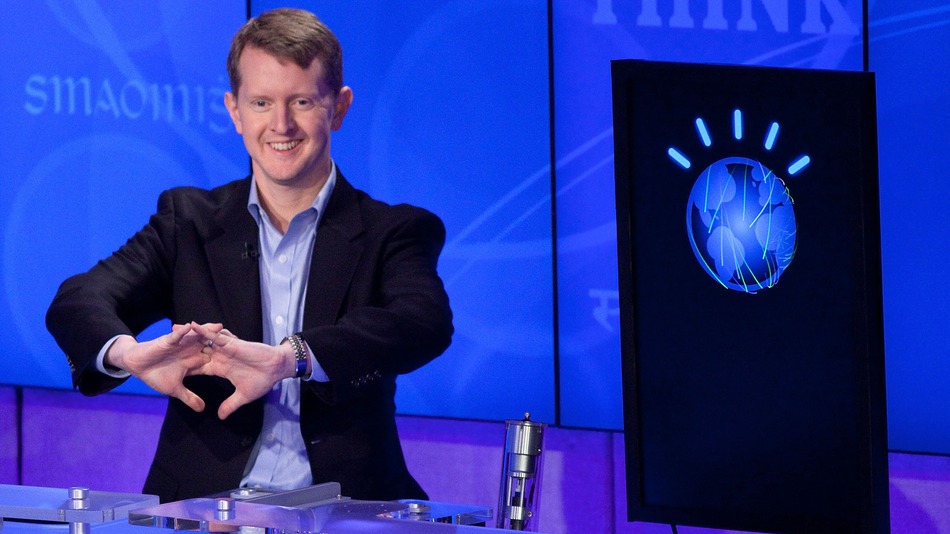Компания IBM планирует создать подразделение Watson Business Unit, которое будет заниматься коммерциализацией суперкомпьютера Watson, оснащенного системой искусственного интеллекта.

Сумма, которую предполагается направить на решение этой задачи, превышает $1 млрд. Ожидается, что в Watson Business Unit будет трудиться порядка 2000 сотрудников, большинство которых займется как поиском ниш, где Watson может стать полезным, так и соответствующих клиентов. Параллельно из суммы $1 млрд намечается потратить $100 млн на создание фонда, из которого будет осуществляться финансирование разработки приложений для IBM Watson. В частности, планируется работа со стартапами.
Генеральный директор IBM Вирджиния Рометти (Virginia Rometty) в октябре 2013 года заявила, что не позднее чем через 10 лет подразделение Watson начнет приносить ежегодный доход в размере $10 млрд. Озвучивались и другие амбициозные, хотя и менее масштабные планы. В частности, издание The Wall Street Journal процитировало топ-менеджера IBM, предсказавшего ежегодный доход от Watson в размере $1 млрд начиная с 2018 года.
В реальности же, по словам г-жи Рометти, за три последних года общая выручка от использования Watson составила менее $100 млн. The Wall Street Journal отмечает, что в настоящее время пользователей, которые работают с IBM Watson каждый день, наберется едва ли полдюжины.
В настоящее время компания разрабатывает две новые версии IBM Watson, первая из которых призвана разрабатывать оптимальную стратегию лечения рака с учетом особенностей конкретного пациента , а вторая будет составлять инвестиционный план на основе предварительного изучения портфолио заказчика.
Напомним, одна из ключевых особенностей суперкомпьютера IBM Watson - способность к обучению. Машина "усваивает" информацию, перерабатывает ее и делает выводы, а если они неправильные, учитывает это, повышая уровень своих аналитических способностей. При этом многие эксперты указывают, что "тренировка" IBM Watson на сегодняшний день остается слишком сложным и дорогостоящим делом.
Why IBM's Watson Doesn't Matter Outside of Jeopard
What if we built a super-smart artificial brain and no one cared? IBM is facing that possibility. According to the Wall Street Journal , the company is having a hard time making money off of its Jeopardy -winning supercomputer, Watson. The company has always claimed that Watson was more than a publicity stunt, that it had revolutionary real-world applications in health care, investing, and other realms. IBM CEO Virginia Rometty has promised that Watson will generate $10 billion in annual revenue within 10 years, but according to the Journal as of last October Watson was far behind projections, only bringing in $100 million.

The Journal article focuses on difficulties and costs in "training" Watson to master the particulars of various businesses - at the M.D. Anderson Cancer Center, at Citigroup, at the health insurer WellPoint. But there may also be another issue: the sort of intelligence Watson possesses might not be a particularly good fit in some of the jobs IBM is looking at.
Klaus-Peter Adlassnig is a computer scientist at the Medical University of Vienna and the editor-in-chief of the journal Artificial Intelligence in Medicine . The problem with Watson, as he sees it, is that it's essentially a really good search engine that can answer questions posed in natural language. Over time, Watson does learn from its mistakes, but Adlassnig suspects that the sort of knowledge Watson acquires from medical texts and case studies is "very flat and very broad." In a clinical setting, the computer would make for a very thorough but cripplingly literal-minded doctor - not necessarily the most valuable addition to a medical staff. There may well come a day when computers can spit out diagnoses and treatment regimens, leaving doctors little to do but enter data and hone their bedside manner, but that day has not yet come.
To be useful in real-world medicine today, Adlassnig suggests, IBM would be better served designing tools to help inform doctors' own clinical evaluations. Watson's competition in that niche would be the database PubMed and, of course, Google. Neither of the two are going to make anyone feel bad about their Jeopardy prowess, but they're a lot cheaper than Watson; they were designed to help people answer questions, not beat them at it.
Image: Ben Hider/Getty Images Entertainment/Getty Images
This article originally published at Businessweek here
